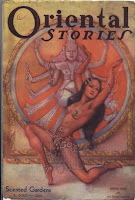 |
| The Pilgrim at the Gate of Idleness, by Edward Burne-Jones |
I doubt that hard work and discipline, major incentives and foundations of modern-day capitalism, are an integral and natural part of human beings. We may be born with a predisposition toward those aspects and some embrace and internalize them more quickly, easily and readily than others, yet it is generally not a spontaneous expression of one's natural state, unlike its much criticized counterpoint, idleness.
I believe that if given the chance, people would prefer to do nothing and would probably shun work whenever they can. Even in today's workforce, many people call in sick or ask for days off because there are certain days they really don't feel like working. It happens pretty much to everyone from time to time. And obviously, such sentiments and actions are counterproductive and lead to a loss of revenue for the company if not the individual.
Yet in modern society, more than ever, you need to work hard and restlessly for a living and nothing is free. Because of a competitive market, you need to try your best and in some cases wear yourself out, so you don't lose your job to someone else. Networking and contacts can only get you so far in the pragmatic and profit-oriented world of business.
At the same time, you have been drilled for many years and through different sources, such as family, friends, school and counselors that work is not only necessary but indeed “good.” It is not only a commendable activity, but is actually transformed into a virtue. You are in many ways judged and defined by the work you do, which is exemplified by the question of what you do (for a living) since “you are what you do.”
A life of idleness is frowned upon, while lucrative professions, such as lawyers and doctors, demand global respect. As a result, you work not only to fulfill economic and financial needs, but also for emotional and psychological reasons. The concept of work is so ingrained in us that we simply cannot think of a life without it.
While work is equated with morality, idleness is considered a sin. In other words, we feel guilty and bad when we do not do anything “productive.” In terms of business, productivity is translated into income and profit, and this may explain why many business-people simply cannot find the means to fully unwind. Benjamin Franklin's maxim of “Time is money” is so deeply ingrained that they cannot shake off the feeling of wasting precious time and money when they are not actively devoted to their business.
The capitalist world thrives on such a frame of mind to operate at the highest levels. By internalizing hard work and discipline, we become part of the immense system of production. “Publish or perish,” they say in literary and scholarly circles. Yes, I do enjoy writing and publishing posts, but then again I am not making a living from it.
It is true that doing what one loves, following one's vocation means that hard work and discipline will flow naturally. Yet there is always the danger that your enthusiasm will ebb out through the repeated cycle of daily work routine. There is always the shadow of idleness reflected in your tasks because, let's face it, there is nothing better to do than to be doing nothing.




